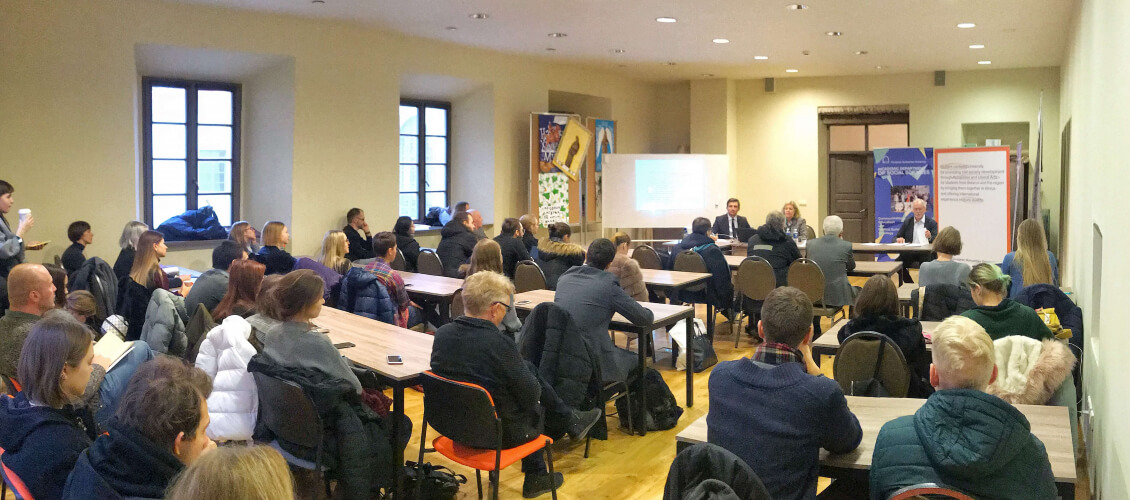Prof. Gert-Rüdiger Wegmarshaus of the EHU Center for German Studies introduced Ambassador Viets to participants of the lecture. Ambassador Viets emphasized that nowadays trend to populism is highly visible in politics worldwide. A number of related phenomena, such as identity change in the society, differentiation of wealth across the Globe, changes of the phenomenon of the middle class, spread of myths about threats of globalization and a gap between elites and people frame the conjuncture of this trend.
According to Ambassador of Germany to Lithuania, economic disparities contribute to populism across Europe, and stagnation of living standards is favourable soil for development of populistic tendencies. One of the remarkable features of populism in the European Union (EU) is that right-wing and left-wing populists take over narratives of each other. Development of populism contributes to disregard of core values of EU, what is seen on vivid examples of Hungary and Poland. According to existing estimates, 2019 European Parliament Elections will be held in light of rising populism.
A remarkable feature of contemporary EU politics is pressure of eurosceptics on traditional parties. However, eurosceptics don’t agree among themselves on a number of issues, what weakens their arguments. At the end of her keynote, Ambassador Viets, however, stressed that according to the latest poll of Eurobarometer, currently, EU approval rate is highest in last 35 years.
After the lecture, series of issues were discussed in the framework of follow-up discussion, such as support base of populist parties in Europe, recent actions of European Commission regarding abuse of law in Hungary and Poland, as well as future development of EU on ways of multi-speed Europe or more integrated union.
